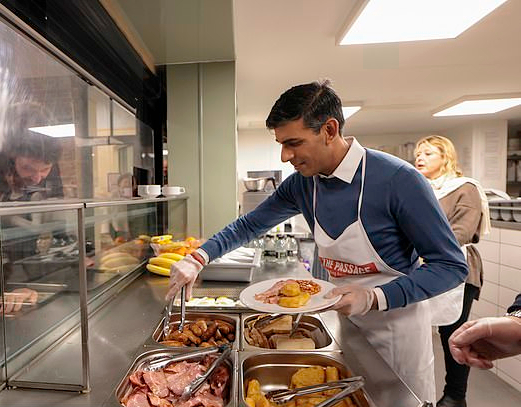As inflation is making essential goods ever more expensive, increasing numbers of people are relying on food banks. Politicians and the ruling class blame covid-19 and the war in Ukraine for the “cost of living crisis.” Working-class people know otherwise.
A recent study carried out by the charity Oxfam states that the richest 1 per cent own 46.6 per cent of global wealth; and the richest 1 per cent of people in Ireland now own over a quarter of the total wealth. It made the point that, “for the first time in a quarter of a century, the rich are getting richer while the poor are getting even poorer.”
It is well known that fuel companies and big businesses are making massive profits while ordinary people are struggling to meet their essential needs, and that private companies are in charge of health and other public services. The reality is that private companies care little about the provision of health or education, or how to drive an ambulance or a train. Their priority is profit, and that means driving down wages and quality services. In other words, they expect us to work more for less so that they can line their pockets.
To help those in need is a noble and decent thing to do; but we must seriously ask, Why do we need food banks, or charities, in the first place? Are we happy to institutionalise poverty by managing misery?
The solution is simple. We must start by reducing inequality and tax the rich who capitalise on our collective labour. If Oxfam has called for a “wealth tax” to fund essential public services and climate initiatives, we as activists must go a step further, because we know that there is a wealth of skills in our communities.
It is imperative that we reject the capitalist narrative that there isn’t enough money to resource essential services and public housing. We must not be fooled by politicians who validate our economic misery and advocate charities to help us survive. The image of the British billionaire prime minister, Rishi Sunak, dishing out food to those in need is nothing short of an affront to our dignity and our intelligence.
Working-class empowerment is the key to decent living standards and an environment that is not reliant on donations. A 1970s Aboriginal activists group in Queensland once wrote, “If you have come to help me you are wasting your time. But if you have come because your liberation is bound up with mine, then let us work together.”
To conclude, it is crucial that we work together to bring about a society that is not reliant on charities, crumbs off the table, or the idea of Robin Hood coming to our rescue.
The answer, in a word, is socialism.






